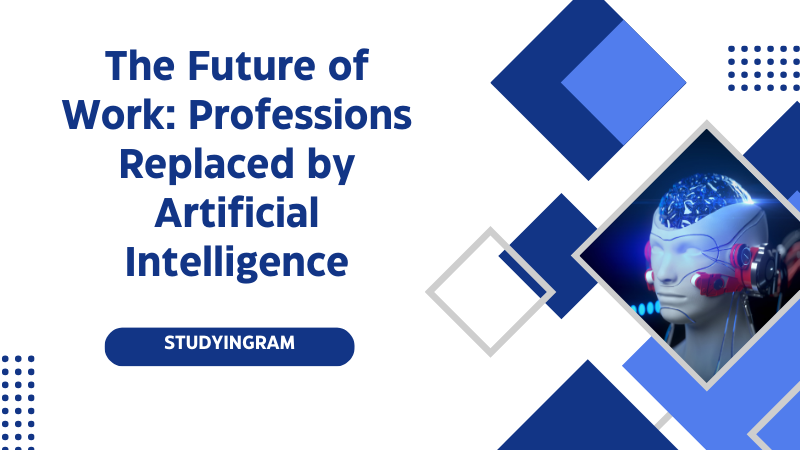With the technological Professions era taking over people’s lives, AI is definitely changing the game in several fields. Though there are several advantages of this Technological Change, its consequences on certain professions are questionable. Specifically, AI, in tasks that are repetitive, data-driven, or routine, has proven to reduce the need for human labor, thus threatening the traditional future of several sectors.
Which Professions Are at Risk?
Following are some of the job categories that AI has significantly impacted so far:
1. Data Entry and Office Support Services
The routine and repetitive tasks, like data entry, are a piece of cake for AI algorithms. The automation systems can encode and set in order large volumes in minutes. This decreases the tendency of companies to hire big teams of workers for manual data processing.
2. Customer Service
AI-powered chatbots and virtual assistants have already replaced customer service jobs. Artificial intelligence quickly gives correct answers and solves standard queries. In particular, these 24/7 technologies in the e-commerce sector reduce the cost of human resources for businesses.
3. Accounting and Financial Analysis
AI also has huge effects on accounting and finance. This technology is used to handle redundant tasks such as invoice processing, payroll calculations, and financial reporting with the help of AI-powered software. In addition, big data analysis is also conducted by AI to help investment decisions.
4. Journalism and Copywriting
Creative fields such as journalism and copywriting are not left out. AI-powered tools are well capable of generating everything from news summaries to blog posts. As a result, there are job losses for journalists and copywriters, especially on matters that are simple and repetitive.
5. Factory Workers and Assembly Lines
Industrial automation threatens to take jobs along the production lines. Robots and AI algorithms can manufacture products faster, with fewer errors, and at a lower cost. Even production hubs like China are shifting toward AI-driven robotic technologies.
6. Psychologists
AI-powered psychologists and mobile apps are changing the face of psychological support services. Mobile apps developed for anxiety and depression have started to gain preference over human psychologists in many cases. However, expertise and human empathy are more important for complex cases.
7. Cashiers
In retail, automated checkout systems and AI-based self-service technologies are eliminating cashiers. Such systems have already been implemented in various large retail chains, where customers can complete their purchases on their own.
8. Dietitians
AI applications designed to assist individuals in creating healthy meal plans are becoming widespread. These apps analyze user data to provide personalized recommendations. However, professional dietitians are still essential for handling complex health issues.
Adaptation to AI: Emergence of New Professions
While AI takes away some jobs, it also gives rise to new ones. The fields such as data science, AI development, robotics engineering, and ethics consulting are becoming mainstream. Creative and empathetic professions will also develop more significance. For instance, therapists, artists, innovative designers, and professionals who work in leadership roles may also be less affected by this technological transformation.
Those professionals who will learn to work together with AI will profit from this process most. Such human skills as empathy, strategic thinking, and creative problem-solving will be of paramount importance in the future.
Among the new areas of occupation are also AI teachers that train AI systems; professionals who fine-tune human-robot interaction; and regulators who make sure algorithms judge fairly and neutrally. This transformation indicates a very important aspect of learning and adaptability for individuals and companies. Understanding these rapid developments and investing in self-improvement may show AI as an opportunity, rather than a threat. Such a future where human intelligence collaborates with artificial intelligence promises even greater efficiency and innovative solutions.





